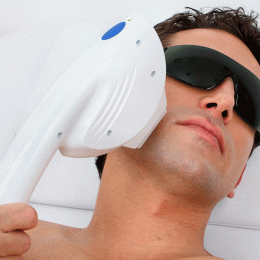Concerned by the number of patients with a distorted sense of self and unrealistic expectations triggered by social media, the Cosmetic Physicians College of Australasia (CPCA) has launched a new campaign called ‘Get Real’, which is designed to help the public understand that not only do selfies provide a distorted sense of self but can also contribute to low self-esteem.
The campaign is in response to both the trivialisation of cosmetic procedures, and some recent alarming research regarding social-media-associated facial dysmorphia. A study published in JAMA Facial Plastic Surgery used a mathematical model to prove that selfies can distort someone’s face by up to 30%.
The research suggests that an accurately portrayed selfie can only be taken at 1.5 metres away, and in anything closer (as is the case in all selfies unless taken with a particularly long selfie stick!) facial features will be distorted. While the nose appears larger, other features such as lips appear smaller than they really are.
According to research, this proven distortion of physical features in selfies can negatively impact on self-image and the perception of ’self’ – not only psychologically (ie Snapchat Dysmorphia) but also as a physical reality.
“This selfie phenomenon and the associated physical and psychological side effects makes it even more imperative for patients to seek appropriate professional advice by trained and experienced doctors. CPCA members follow a strict code of conduct and uphold ethical standards, allowing them to make psychological assessments and thus, advise accordingly, putting patient safety first,” said Dr Michael Molton, President of the CPCA.
“It is important to remember that non-surgical cosmetic enhancements are still a cosmetic medical procedure so it’s imperative that patients seek doctors who provide a high standard of care to deliver the best outcome”.
Molton says that their members are committed to helping their patients understand that their selfies simply aren’t accurate representations of their features.
“The CPCA recognises the importance of helping patients understand that proportion in reality is different to proportion in selfies. We are doctors who are experienced and trained to listen to our patients and their concerns while making appropriate recommendations in line with realistic expectations. We are here to guide our patients to make informed decisions to achieve a desirable outcome”, said Dr Molton.
The first phase of the campaign includes press release distribution to media, followed by a consumer digital advertising campaign including sponsored posts, banner ads and social media. Messaging will inspire consumers to “Get Real” with doctors they trust and who put patient safety first, kicking off July 1st.
For more news and updates, subscribe to our weekly newsletter.




